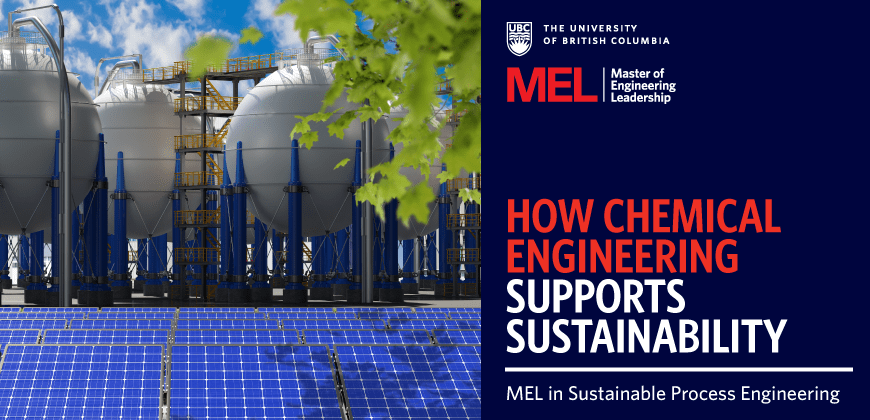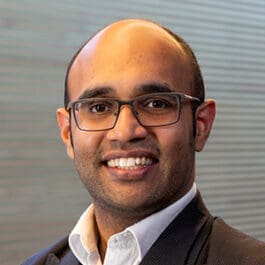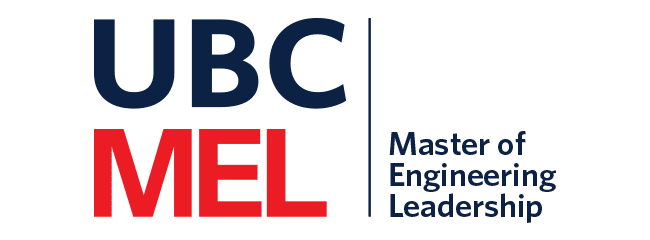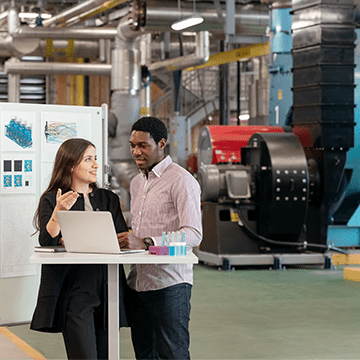How chemical engineering supports sustainability in Canada

With Paris Agreement commitments requiring us to decarbonize products and processes across all industry sectors, chemical engineers, biological engineers and process engineers can play a critical role in moving Canada and other countries away from fossil-fuel-based carbon sources, be that to create products or generate energy.
To do so, we need chemical engineers who know how to turn innovations into solutions – engineers who have wide-ranging technical expertise, but, as importantly, understand the many factors at play required to get widespread buy-in to new processes and who have the business skills to scale up solutions.
“Getting from where we are now to where we need to be requires changemakers: people with the technical knowledge and leadership skills to identify viable opportunities, scale them up and encourage their widespread adoption,” says Naoko Ellis, an instructor in the Master of Engineering Leadership (MEL) in Sustainable Process Engineering.
A curriculum focused on sustainable design engineering
The MEL in Sustainable Process Engineering offers an interdisciplinary curriculum that equips students with these and other skills. Students choose one of three main areas of study: reactor and processing technologies, systems design and engineering, or sustainable processes and feedstocks. Courses are taught by world-renowned experts in their field from UBC’s Faculty of Applied Science.
For example, one popular course on carbon capture, conversion and sequestration is taught by Dr. Ellis, a leading researcher in this area. Students work directly with leading local companies to conduct case studies on these technologies to evaluate their value and impact.
This strong connection with local industry partners who are at the forefront of sustainability engineering makes UBC a particularly exciting and vibrant place to study.
“There’s a vibrant cluster of activity here, spanning everything from biogas production to fuel cell manufacturing, to the transformation of industrial waste into useful products, and to the development of sophisticated software using data mining and analytics for the optimization of the operations of existing complex industrial plants or the development of new processes,” notes Sergio Berretta, a leading consultant to industry and an adjunct teaching professor at UBC, where he teaches the Venture Design Lab course.
All students must take the Venture Design Lab course, where they learn to think like an entrepreneur as they navigate the steps required to successfully advance ideas through to development and commercialization. Student Barry Kanchan, for example, looked at the viability of using green hydrogen (produced through solar energy) in an ammonia plant rather than a fossil fuel.
Preparing chemical engineers to be sustainability engineering leaders
Being a sustainable engineering leader requires much more than technical expertise. Leaders in sustainable process engineering need an understanding of business, strategy, innovation, analytics, accounting, project management and more.
“Many engineering programs focus solely on technical education and do not give students insight into the many other factors that influence whether an innovation becomes a reality,” says Vikram Yadav, Program Director of the MEL in Sustainable Process Engineering.
“Our program’s courses on strategy, innovation, business and leadership give students a window into these other factors and a more holistic understanding of what’s needed to successfully launch a sustainable new product or process.”
Students gain broad-ranging business knowledge through courses taught by UBC Sauder’s Robert H. Lee Graduate School, one of the world’s top-ranked graduate business schools. In these courses, students explore case studies, engage in lively conversation and work together in interdisciplinary groups. An intense three-week course in the summer delves into six core business competencies, including accounting, organizational behaviour, finance, marketing, business technology management and professional development.
Advancing into leadership positions in sustainable design engineering
Many students use the MEL in Sustainable Process Engineering to pivot out of successful careers in the oil and gas industry and into industries more aligned with their sustainability values.
This was the case for Raphael Soldi, for example, who was hired before he graduated to work as a process engineer for a start-up engineering company in the Netherlands that focuses on sustainability projects. He’s since been promoted to a business development specialist position at the same firm.
“I’m working for a start-up where I am looking at more aspects of the business than I had been in my earlier professional roles – not just the technical side of things, but also finance and economics,” he says. “The MEL was a good motivator in getting me to where I am now.”
Gabriela Valles, who had worked as an environmental engineer for a paper recycling facility in Mexico, used the degree to move out of a sales-focused role to a position as a business analyst where she works on continuous improvement projects.
Start your future as a sustainability engineer
The MEL in Sustainable Process Engineering was designed for professionals who want to make a difference in the world by deepening both their technical and their business knowledge.
“Saying we need change is not enough,” says alumni Yasser Arwal.
“We need people with the skills to lead change. That’s why I liked the dual focus of this program: the focus on sustainability, and how we get there technically, but also the focus on engineering leadership. That means skills in strategy, communication and entrepreneurship. If I want to lead change, I need to have technical acumen as well as entrepreneurship and business management acumen. This program strikes the balance between the two.”
Graduates of the MEL in Sustainable Process Engineering are the changemakers Canada and the world need, ready to advance sustainable design engineering across industries.
“We always have to keep in mind that the best ideas for sustainable products, processes and technologies are of little value if they are not developed and implemented at scale. A successful pilot project is just the start,” says Dr. Yadav. “What we need is the full commercial development of the technologies that will transform our world – helping us economically capture carbon, create products from biomass rather than fossil fuels, and develop products that essentially convert all of the atomic contents of the source material into the product itself.”
Join us for an
Info Session
Sign up for our latest online information sessions and discover what our programs have to offer.
Sign Up NowAssess your Eligibility
Determine if your professional experience and academic background make you a fit for your desired program.
Start AssessmentFeatured Faculty and Staff

DR. VIKRAM YADAV
Sustainable Process Engineering
Translate innovations in green chemistry and sustainable manufacturing into entrepreneurial ventures.
Read More
